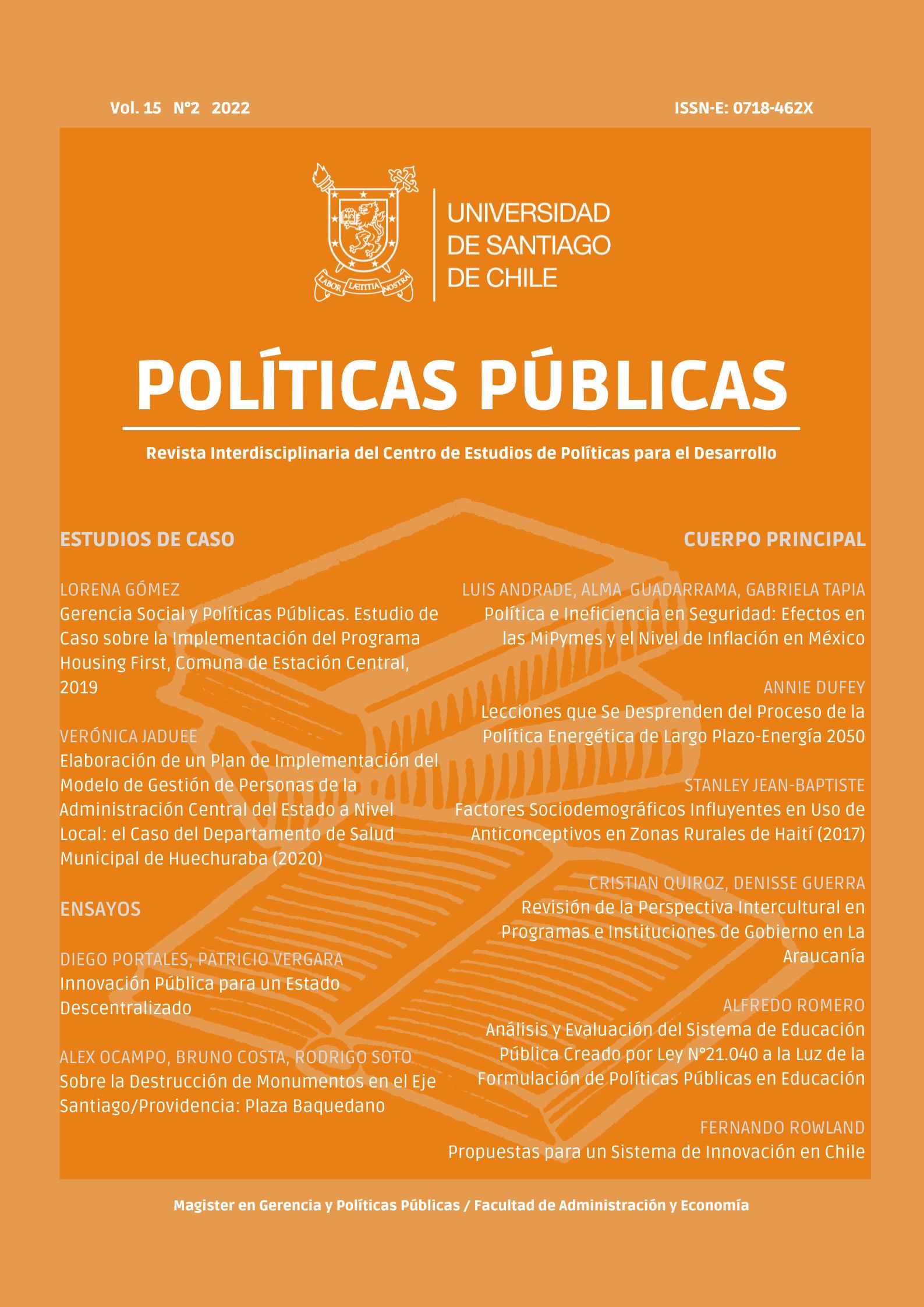Lessons that Deduce from Process of Long-Term Energy Policy "Energía-2050"
DOI:
https://doi.org/10.35588/pp.v15i2.5781Keywords:
Energy Policy, Public Policies, FormulationAbstract
In Chile, a culture of participation for elaboration of public policies has been installed where the energy sector has become a great protagonist. The National Energy Policy 2050 (“Energía-2050”) of 2015 has highlighted nationally and internationally as a benchmark in the participatory development of public policies, not only because of its recent update under a new government and otherwise coalition, becoming a State policy that transcends the current government, but also for having inspired other public policy processes. It shows the formulation process of the first version of Energy 2050 from 2015, identifying the general aspects of the process and the key elements behind its success, as well as the main challenges.
Downloads
References
Bustos, J., Dufey, A., y Tapia, G. (2018). Energía 2050: una Política Energética para Chile. En M. Pacheco (ed.), Revolución Energética en Chile. Ediciones UDP.
Calfucoy, P., Terra, C., y Terra, P. (2017). Análisis de Experiencias de Participación en Políticas de Cambio Climático y Energía en Chile: Aprendizajes y Buenas Prácticas. GIZ — Ministerio de Energía.
Dumas, J. (2013). Análisis de la Experiencia de la Plataforma Escenarios Energéticos 2030. Fundación Avina [Documento Interno].
Ministerio de Energía (2014). Agenda de Energía 2014-2018: un Desafío País, Progreso para Todos. Ministerio de Energía.
Ministerio de Energía (2015). Energía 2050 – Política Energética de Chile. Ministerio de Energía .
Ministerio de Energía (2018). Ruta Energética 2018-2022 — Liderando la Modernización con Sello Ciudadano. Ministerio de Energía.



